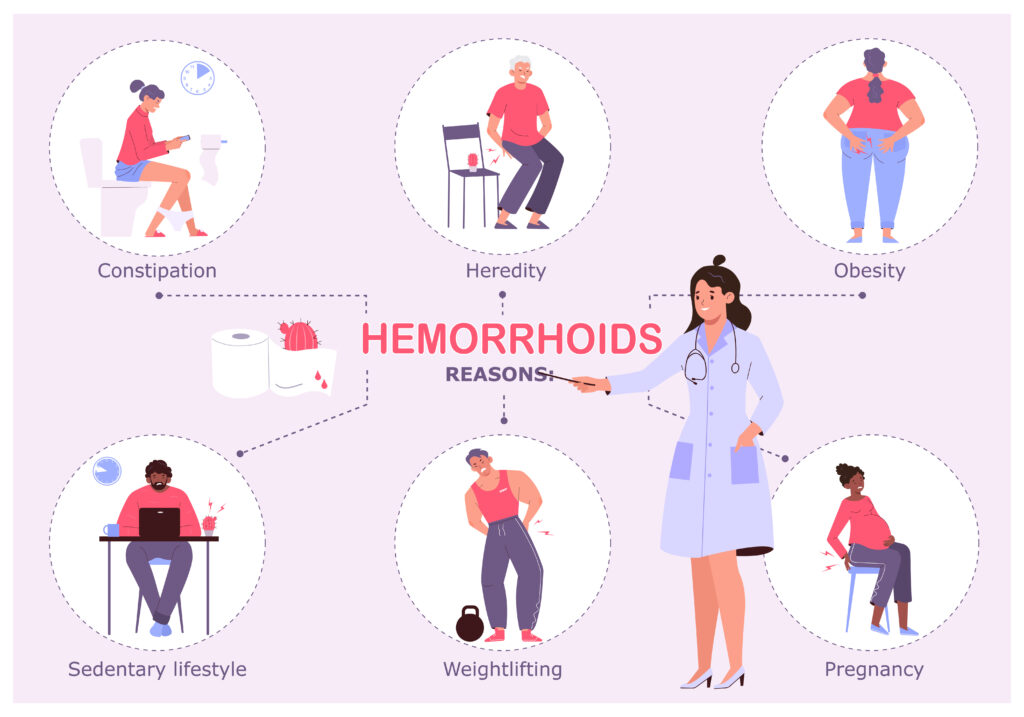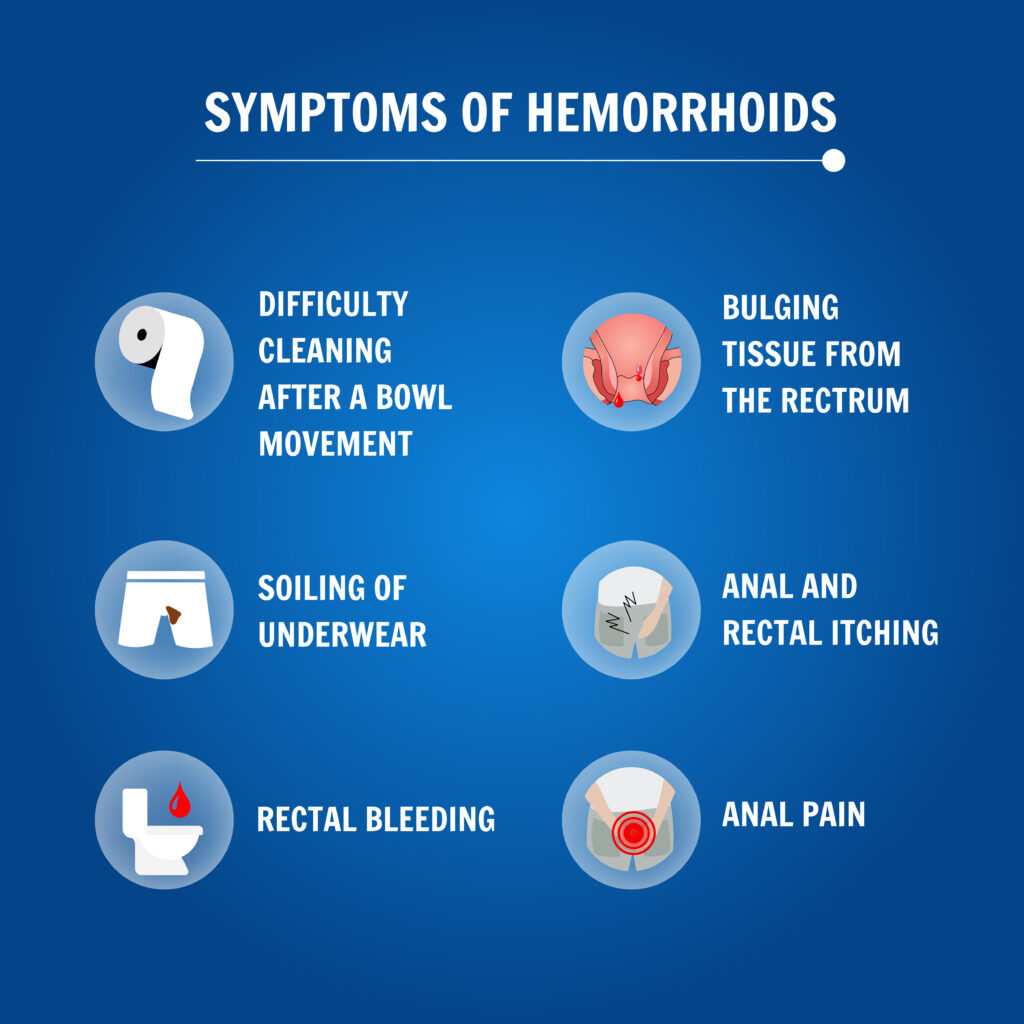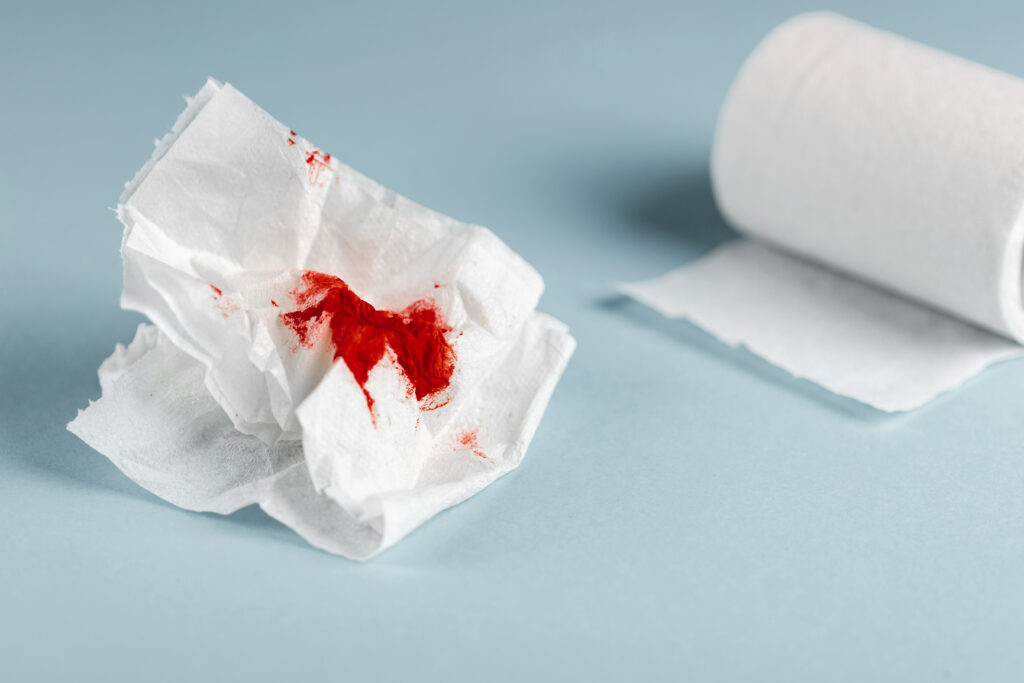Haemorrhoids, often veiled in discomfort and misconceptions, are a prevalent concern affecting millions globally. This blog post endeavours to shed light on the multifaceted causes of haemorrhoids, delving beyond lifestyle factors and exploring the significant influence of pregnancy and delivery.
Causes of Haemorrhoids:

- Straining During Bowel Movements: Excessive straining, whether due to constipation or other factors, is a primary contributor to the development of hemorrhoids. This strain places undue pressure on the rectal veins, leading to their swelling and, subsequently, the formation of hemorrhoids.
- Prolonged Sitting or Standing: Sedentary habits disrupt the natural blood flow in the pelvic area, causing veins in the rectal region to become engorged. This stagnation can give rise to hemorrhoids over time.
- Low-Fiber Diet: Dietary choices play a crucial role in digestive health. A diet lacking in fiber can contribute to constipation, intensifying the strain during bowel movements and fostering an environment conducive to hemorrhoid development.
- Obesity: Excess body weight adds a burden on various bodily systems, including the vascular system. In the case of hemorrhoids, the added pressure on rectal veins increases the likelihood of developing these uncomfortable swellings.
- Pregnancy and Delivery: The miraculous journey of pregnancy comes with its share of challenges, one being an increased pressure on the pelvic veins. This, combined with the physical stress of childbirth, significantly elevates the risk of developing hemorrhoids during and after pregnancy.
Common Symptoms:

- Rectal Bleeding: Bright red blood during bowel movements is a hallmark sign of hemorrhoids, and this symptom can be particularly pronounced during pregnancy and postpartum recovery.
- Itching or Irritation: Hemorrhoids often cause discomfort, itching, and irritation in the anal region. Pregnancy hormones and physical changes can amplify these symptoms.
- Pain or Discomfort: The physical toll of pregnancy, coupled with the strain of delivery, may intensify the pain associated with hemorrhoids, making it a notable concern for expecting and new mothers.
- Protruding or Prolapsed Tissue: The increased pressure on pelvic veins during pregnancy may lead to the protrusion of hemorrhoidal tissue, requiring timely medical attention and intervention.
Prevention and Lifestyle Tips:

- Maintain a High-Fiber Diet: Pregnant individuals are encouraged to prioritize fiber-rich foods such as fruits, vegetables, and whole grains. Adequate fiber intake promotes regular bowel movements, reducing the risk of hemorrhoids.
- Stay Hydrated: Proper hydration is crucial during pregnancy to prevent constipation and maintain overall health. Ample water intake supports digestive health and minimizes the risk of hemorrhoid development.
- Regular Exercise: Safe and appropriate exercises during pregnancy promote healthy circulation and reduce the risk of hemorrhoids. Consultation with a healthcare provider is recommended to determine suitable activities.
- Avoid Prolonged Sitting or Standing: Incorporate breaks and gentle movements into your routine to alleviate pressure on rectal veins during pregnancy. This is especially relevant for individuals with jobs that involve prolonged periods of sitting or standing.
When to Seek Medical Attention:

If you experience persistent or severe symptoms, it’s crucial to consult with a healthcare professional. Dr. Chan Siew How specializes in demystifying hemorrhoids, offering expert guidance and personalized solutions for effective relief.
Understanding the causes and symptoms of hemorrhoids is the first step toward proactive management and a healthier, more comfortable life. If you have questions or concerns, don’t hesitate to reach out for expert advice and support. Remember, knowledge is the key to demystifying the challenges posed by hemorrhoids.

